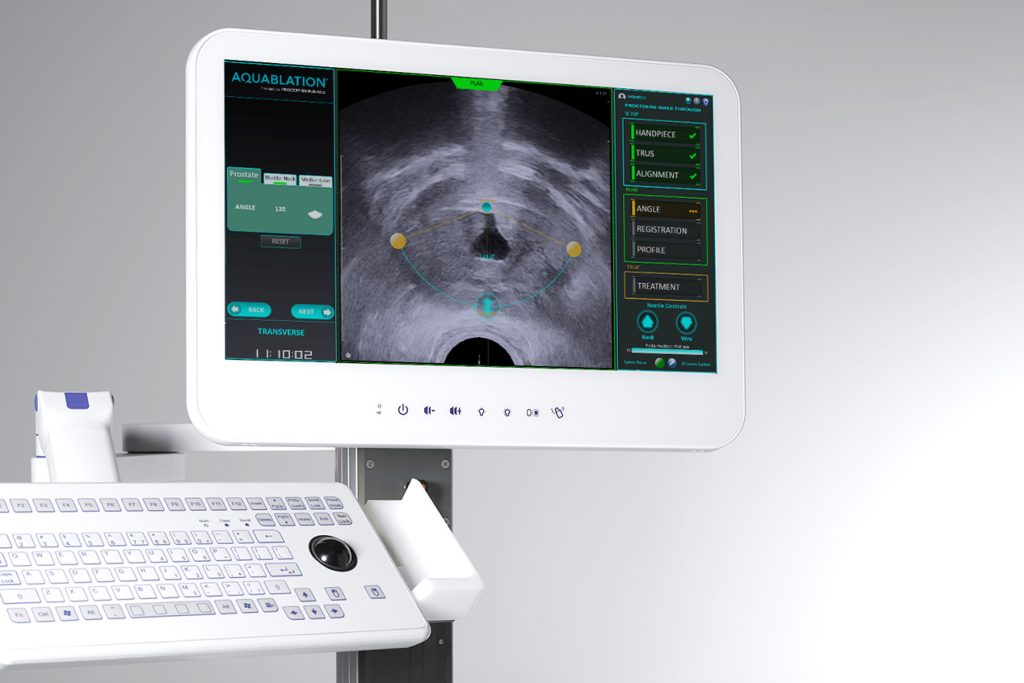toxic proteins in alzheimer’s | Researchers at Washington University School of Medicine have identified a key step in the development of tau tangles. The tau protein is an important part of the brain’s infrastructure that is responsible for stabilizing neurons into their proper shapes. However, tau can get knotted into tangles, which injure brain tissues and cause tauopathies, a group of brain diseases characterized by problems with learning, memory and movement like Alzheimer’s and Parkinson’s diseases. The study found a connection between tau mutations and stress granules, RNA-protein complexes that form to help cells survive stressful situations. They are rich in tau, which can kickstart the aggregation process that leads to tangles. This discovery could lead to new approaches to treating tauopathies.
first in the region
Doctors at Mercy Hospital St. Louis were recently the first in the metro to perform Aquablation therapy. The procedure is for lower urinary tract symptoms due to benign prostatic hyperplasia (BPH), a common condition that impacts men as they age and the prostate gland enlarges. It can cause problems like increased urination and an inability to completely empty the bladder. Aquablation is a minimally invasive procedure that uses the AquaBeamâ Robotic System, the first FDA-cleared, surgical robot that combines multi-dimensional imaging, automated robotics and heat-free waterjet ablation for targeted removal of prostate tissue. “With the new procedure, we’re able to protect surrounding tissue, reducing common side effects caused by other surgical options,” says Dr. Luis Anglo, Mercy urologist and the first St. Louis-area doctor to
perform Aquablation.
pancreatic cancer research
Washington University School of Medicine has received a prestigious Specialized Programs of Research Excellence (SPORE) grant from the National Cancer Institute of the National Institutes of Health to support research into improving therapies for pancreatic ductal adenocarcinoma, the deadliest form of pancreatic cancer. Fewer than 10% of patients who receive the diagnosis survive longer than five years. The five-year grant will provide around $10.9 million in funding and will support three major projects. The first will investigate a strategy to make this form of pancreatic cancer sensitive to immunotherapy. The second will look into ways to make the cancer respond to vaccines designed to target specific antigens on the tumor. The final project will explore how to make pancreatic cancer more vulnerable to chemotherapy by using an anti-inflammatory compound.
achievement in geriatric psychiatry
Dr. George Grossberg, the Samuel W. Fordyce professor and director of geriatric psychiatry at Saint Louis University School of Medicine, has been honored for his achievements in the field of older adult mental health. He is a recipient of the 2023 International Psychogeriatric Association’s Distinguished Service to the Field of Psychogeriatrics Award. Grossberg has been a leader in developing mental health programs, treatment and research in geriatrics, specializing in Alzheimer’s disease and other dementias, late-life depression, delirium, psychiatry in senior living communities and geriatric psychopharmacology. He participated in the petition to the American Board of Psychiatry and Neurology to officially establish the field of geriatric psychiatry as a subspecialization in psychiatry and to provide a means of identifying properly trained and experienced geriatric psychiatrists.
